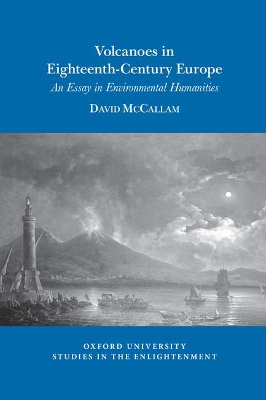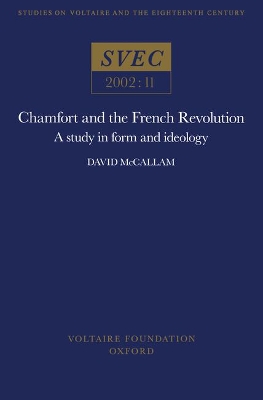Oxford University Studies in the Enlightenment
2 total works
2019:07
This study explores the explosive history of volcanoes and volcanic thought in eighteenth-century Europe, arguing that the topic of the volcano informed almost all areas of human enquiry and endeavour at the time.
Encountered on the Grand Tour, sought out by scientific explorers or endured by local populations in southern Italy and Iceland, erupting volcanoes were a physical reality for many Europeans in the eighteenth-century. For many others, they represented the very image of overwhelming natural power, whether this was ultimately attributed to spiritual or material causes. As such, the volcano proved an effective and versatile 'tool for thinking' in a century which ushered in modernity on several fronts: continental tourism, new earth sciences, the sublime and picturesque in art, industrial and political revolution, the conception of the modern nation-state, and early intimations of environmental and climate change. But the volcano also gives us, in the twenty-first century, a privileged site (as both topography and topos) at which we can reconnect disparate and divided fields of research across the sciences and the humanities.
Drawing on a rich variety of multi-lingual primary sources and the latest critical thinking, this study combines material and symbolic readings of eighteenth-century volcanism, constantly shifting frameworks, so as to consider this topical object through different disciplinary perspectives. The volcano is clearly transnational; this research also demonstrates how it is fundamentally transdisciplinary.
2002:11
In the 'Discours' and Des academies, Chamfort opposes the implicit discursive norm of le bon usage sanctioned by the Academie francaise, because it represses free expression and at the same time constitutes the Academie itself into an oppressive corporation imbued with neo-feudal values. Chamfort's subsequent interpretations of revolutionary events in his Tableaux historiques, while making explicit this same radical libertarianism, frame some reservations about the insurgent peuple as a political force. In the end, many of the tensions troubling Chamfort's politics are resolved by his posthumous Maximes et pensees, whose prevailing principle of honnetete gives them a rhetorical and political independence from both the ancien regime, centred on notions of honneur, and the revolutionary Republic, founded on a principle of vertu.
Previous studies have tended either to interpret Chamfort's works from their historical or biographical context, or - by considering exclusively the Maximes et pensees - to subordinate them to an established literary tradition. This innovative reading posits Chamfort's texts as an exemplary meeting-place of literary practice and political praxis at the time of the Revolution, shedding new light on both the function of literary forms in Chamfort's politics and the role of Chamfort the writer, as an ideological subject caught up in revolutionary events.

